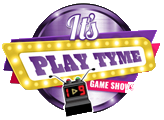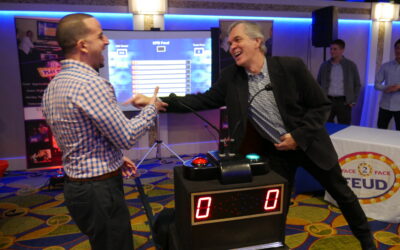From sharpening analytical skills to improved memory, your company can provide a fun and engaging game to encourage a culture of learning growth with these 5 guessing games.
Are you ready to see how these engaging games can help your team in fostering better communication and teamwork?
Read this article, if you want your employees to learn and explore some icebreakers, number guessing games, word games, memory games, and let’s not forget, good ole trivia games.
5 Guessing Games that Promotes a Culture of Learning and Growth

1. Icebreakers – Fun Fact Edition
Icebreaker activities are fun activity and a great way to introduce people. Whether you’re hosting a corporate event, a class reunion, or a family get-together, these Icebreaker games can help you get to know each other better.
We have a list of get-to-know-you guessing games and conversation starters that can be used to start any party or gathering. If you’re looking to get people talking and engaging there are plenty of introduction games listed below to choose from.
- “Auction Battle”: Divide participants into pairs or small groups. Each person shares a fun fact about themselves with their group. The groups then compete against each other in an “auction battle” format.
Each group takes turns presenting their fun fact, and the other groups bid points or tokens on which fun fact they find the most interesting or surprising.
The group with the highest bid wins the round. This game encourages engagement, active listening, and friendly competition while learning fun facts about each other. - “Guess Who?”: Before the icebreaker, ask each participant to write down a unique fun fact about themselves on a small piece of paper. Collect the fun facts and redistribute them randomly to the participants.
Each person must then find the owner of the fun fact they received by asking yes or no questions to the group. The objective is to correctly start guessing who wrote the fun fact.
This game promotes interaction, communication, and deduction skills while uncovering interesting facts about others. - “Charades”: Write down various fun facts on separate pieces of paper and place them in a bowl. Participants take turns selecting and silently acting it out through charades.
The rest of the group guesses the fun fact based on the participant’s actions. This fun game adds an element of creativity and physical expression to sharing these facts. - “Trivia Challenge”: You can play this game based on the fun facts shared by colleagues at work. Divide the group into teams and ask questions related to the fun facts.
Teams earn points for correct answers, and participants can share more details about themselves as the game progresses. - “Mix and Match”: Give each participant a strip of paper with a partial fun fact written on it. Participants mingle and engage in conversations to find the person who has the missing part of their fun fact.
Once a match is found, the two individuals join their strips to complete the fun fact and share it with the group.
2. Number Games
Let’s have some fun guessing numbers! Number-guessing games are great for team building, and they can be used as icebreakers or quick office games.
These games help foster team development and rational decision-making, and they can be used to get to know each other better.
When playing a number-guessing game, players must guess the number that the other person is thinking of. This can be done through giving hints or clues about the number, and the other person trying to guess it.
These games can be used for the following team goals:
- Challenge one another and foster creativity. The person who’s thinking of the number can give as little or as much information as they want, and it’s up to the other person to figure it out.
This can help to create a sense of collaboration between team members, and help them to think outside the box. This can be especially beneficial for small teams and remote teams where communication is key. - Practice problem-solving skills. This can help to build a culture of learning and growth, as it encourages people to think through different scenarios and come up with creative solutions.
It can also foster a sense of camaraderie within the team, as it encourages everyone to come together and work towards a common goal. - Break the ice and get to know each other better. They can also be used to strengthen team bonds and help foster collaboration, creativity, and problem-solving skills.
So why not give it a try and see how it can help your team learn and grow together.
3. Puzzle Games
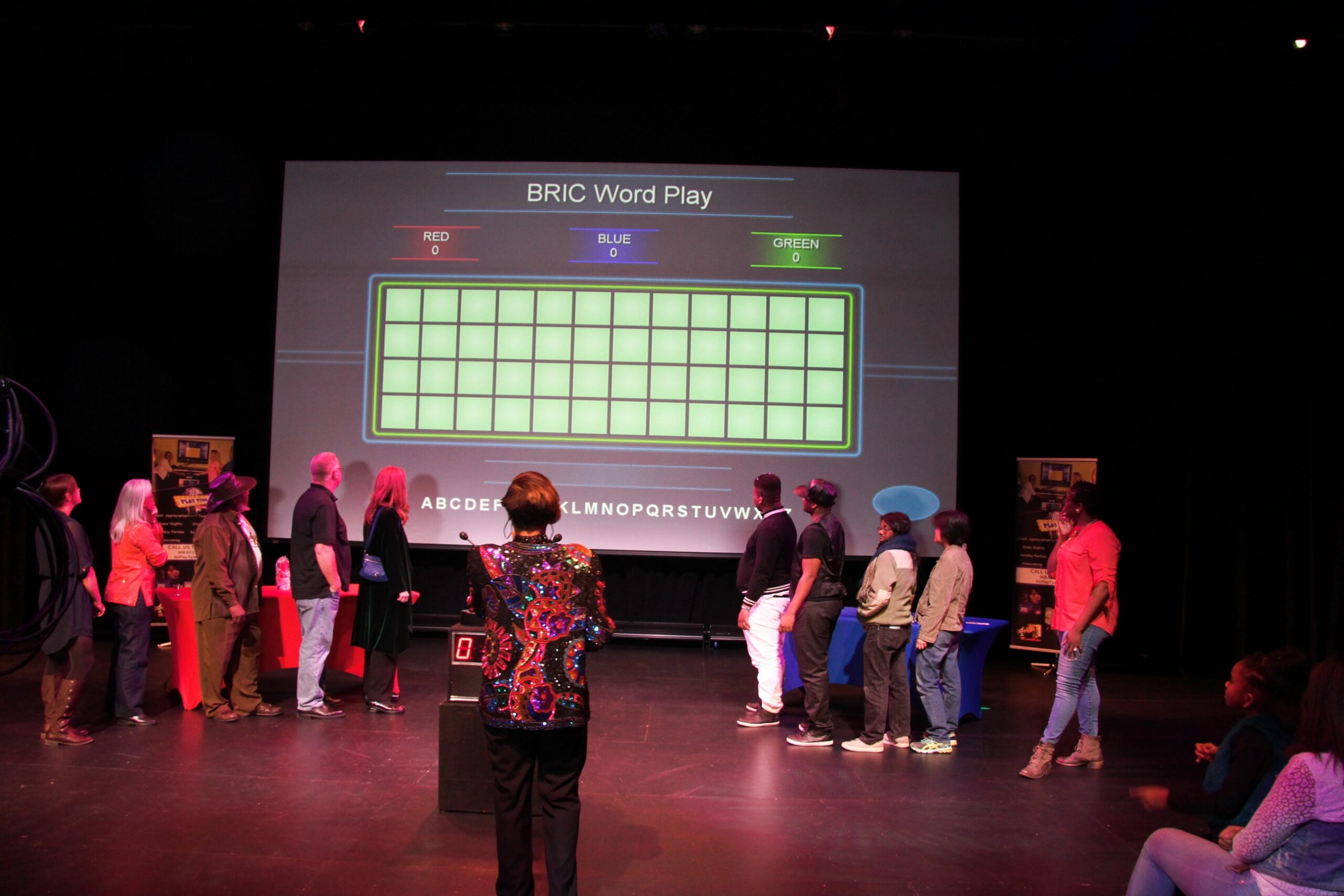
Word games will test your communication and problem-solving skills through collaborative group exercises, They are the perfect way to entertain and start building a culture of learning and growth in teams of all sizes.
Your team can come together to bond and get to know each other better from playing classic favorites like Hangman to new and creative variations. Examples are word searches and crosswords to anagrams and charades.
Teamwork activities can help develop critical thinking skills and, when done in a group setting, encourage collaboration and cooperation. No matter the size of your group, there is a word game that’s perfect for your team.
These games can be tailored to your team’s needs and preferences, making it easy to find the perfect game.
If you’re looking to enhance team building or just have a fun and educational activity, word games are an excellent way to engaging and productive environment in which your team can thrive.
Below is a few examples of some popular games to play.
- Scrabble: Scrabble is a classic word game where players use letter tiles to form words on a game board. Each letter has a point value, and players strategically place words to maximize their score.
- Crossword Puzzles: Crossword puzzles provide clues for horizontal and vertical words that fit into a grid. Players need to fill in the blanks by solving the clues and finding the correct words.
- Boggle: Boggle is a fast-paced game where players shake a grid of letter cubes and try to find as many words as possible within a given time limit. The words must be formed by connecting adjacent letters on the grid.
- Word Ladder: Word Ladder challenges players to transform one word into another by changing one letter at a time. Each step must result in a valid English word, and the goal is to find the shortest possible chain of words.
- Hangman Variations: While you mentioned Hangman in the initial request, there are variations of the game that add twists to the gameplay. Examples include Hangman with categories (e.g., guess words related to a specific theme),
Hangman with limited guesses, or Hangman with a time limit.
4. Memory Games
Try your hand at a memory game to help sharpen your communication and problem-solving skills. Classic favorites like Simon might ring a bell to new games.
Competing against your peers in memory games can create a fun and friendly atmosphere while helping to encourage healthy competition. Memory games are great for improving quick decision-making, and critical thinking, and sharpening analytical skills, which is an ideal activity for teaching leadership and collaboration.
With every turn, certain memory games will challenge the players to think on their feet and make quick decisions,
Here are a few examples of memory games are as follows:
- “Story Chain”: Start with a team member telling a short story (e.g., 1-2 sentences). The next person on the team continues the story by adding their own sentence. Each team member builds upon the previous sentences, creating a cohesive and continuous story. The objective is to remember and accurately recall the entire story when it’s their turn. This game encourages listening skills and memory retention.
- “Sequence Recall”: One team member starts by saying a word or phrase related to the team-building activity. The next person in the team repeats the first word/phrase and adds their own. This continues with each team member repeating the previous words/phrases and adding their own. The objective is to remember and correctly repeat the entire sequence in order. If someone forgets a word, the team starts over. The goal is to complete the longest sequence without any mistakes.
- “Pattern Challenge”: Create a sequence of actions or movements (e.g., clapping, stomping, raising hands). One team member starts by performing the first action, and the next person repeats it and adds their own. This continues, with each team member repeating the previous actions and adding their own. The objective is to remember and correctly repeat the entire pattern in order. If someone makes a mistake, the team starts over. The challenge is to complete the longest pattern without any errors.
5. Trivia Games
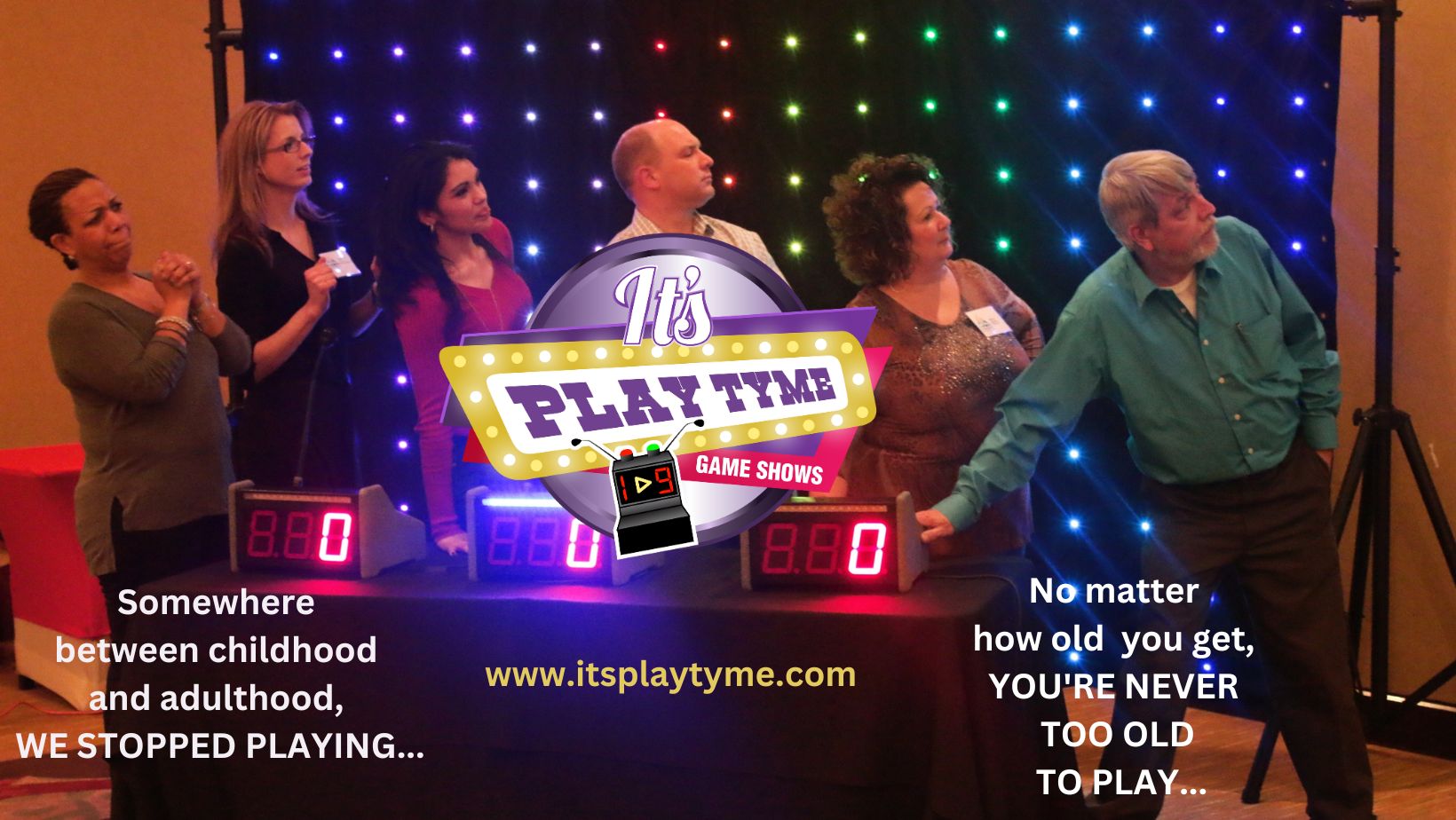
Sharpen your knowledge and challenge yourself with a few trivia games. Trivia games can be a great way to develop problem-solving skills, boost morale, and promote collaboration.
Here are some great benefits of integrating trivia games into your team meetings, work parties, and office parties:
* Enhance Knowledge:
* Team Meeting Games: Trivia games can help to bring out the knowledge in each team member. Having everyone answer questions, it helps to stimulate learning and growth.
* Question Games: Through the use of question games, you can assess the knowledge of the group and create a safe environment for everyone to share their opinions.
* Work Parties: Trivia games can be a great way to break the ice and get everyone engaged in the conversation. This can help to create a more open and collaborative work environment also.
* Improve Team Morale:
* Team Meeting Games: Trivia games can help to create a sense of camaraderie and team spirit. This can help to improve communication and trust between team members.
* Question Games: Asking questions is a great way to reduce stress and promote a more relaxed atmosphere. This can help to make team members more comfortable and engaged in the meeting.
* Office Parties: Trivia games can help to create a fun and upbeat atmosphere. This can help to bring the team together and boost morale.
You can choose to play these trivia games to help build a stronger team.
These types of guessing games can help to improve knowledge, stimulate conversations, and create an enjoyable atmosphere.
So why not try out some trivia games at your next corporate event or team meeting?
Frequently Asked Questions

What are the best ways to introduce guessing games to a group of people?
Engage your group in the excitement of learning and growth with these 5 engaging guessing games!
Start by introducing the concept and explaining the rules: each player must take a turn guessing the answer to each question or riddle, and the player with the most accurate guesses wins.
Use a conversational and engaging tone to draw your audience in and keep them interested.
Encourage participants to think outside the box and challenge themselves to come up with creative solutions.
Try to keep the atmosphere light and fun so you can have an enjoyable and rewarding learning experience.
How long should each game last?
To make the most of this experience, we suggest allocating enough time for everyone to have a go and get the most out of it. Aim for at least 10-15 minutes per game, to give everyone a good chance to test their knowledge and have some fun.
The overall experience should be no more than 2 hours.
This time frame can be adjusted to fit the size and needs of your group.
What are some tips for keeping players engaged?
In order to keep your players engaged offer rewards for correct answers, and use a variety of questions or puzzles to keep the game interesting.
Keep the game time short and sweet, so your players won’t get bored. Make sure the difficulty level is appropriate for the players, so they don’t get frustrated or overwhelmed. Give players clues, hints, tips and other tricks to help them think outside the box.
Finally, make sure the game is interactive, so your players can have a great time competing with each other.
What are the most effective ways to ensure everyone has an equal chance to play?
To ensure everyone has an equal chance to play, the most effective approach is to focus on fairness.
You can either create teams prior to the gameplay or employ techniques such as randomized draw for players. Coordinate rounds of play making sure everyone on the team has an opportunity to answer.
Using a timer to ensure that no one takes too long. By doing this, you can create a level playing field and friendly competition can begin.
Last, always add a fun factor to help to engage players, and keep their attention by creating a learning environment that’s both stimulating and rewarding.
How can the games be adapted for different age groups?
Games that are tailored to different age groups is an excellent way to ensure that everyone stays engaged during the activity. This involves customizing the gameplay, content, and difficulty level to suit the specific needs of each age group.
Some games can have sophisticated mechanics, mature themes, and engaging narratives.
For younger players, games should have easy controls, captivating visuals, and educational elements. Older players need more challenging tasks, complexity, strategic thinking, and multiplayer features.
By adapting the rules of the game and the level of difficulty, you can create an experience that is suitable for all ages and skill levels.
Final Key Takeaways
Wrap up your learning and growth sessions with these fun guessing games.
They’ll help your team to work together and create a culture of learning as well.
The best part, they’re easy to implement and you don’t have to break the bank to make it happen.
With these games, you’ll be able to set your team up for success.
Don’t wait any longer, and start using these guessing games today to nurture your team.
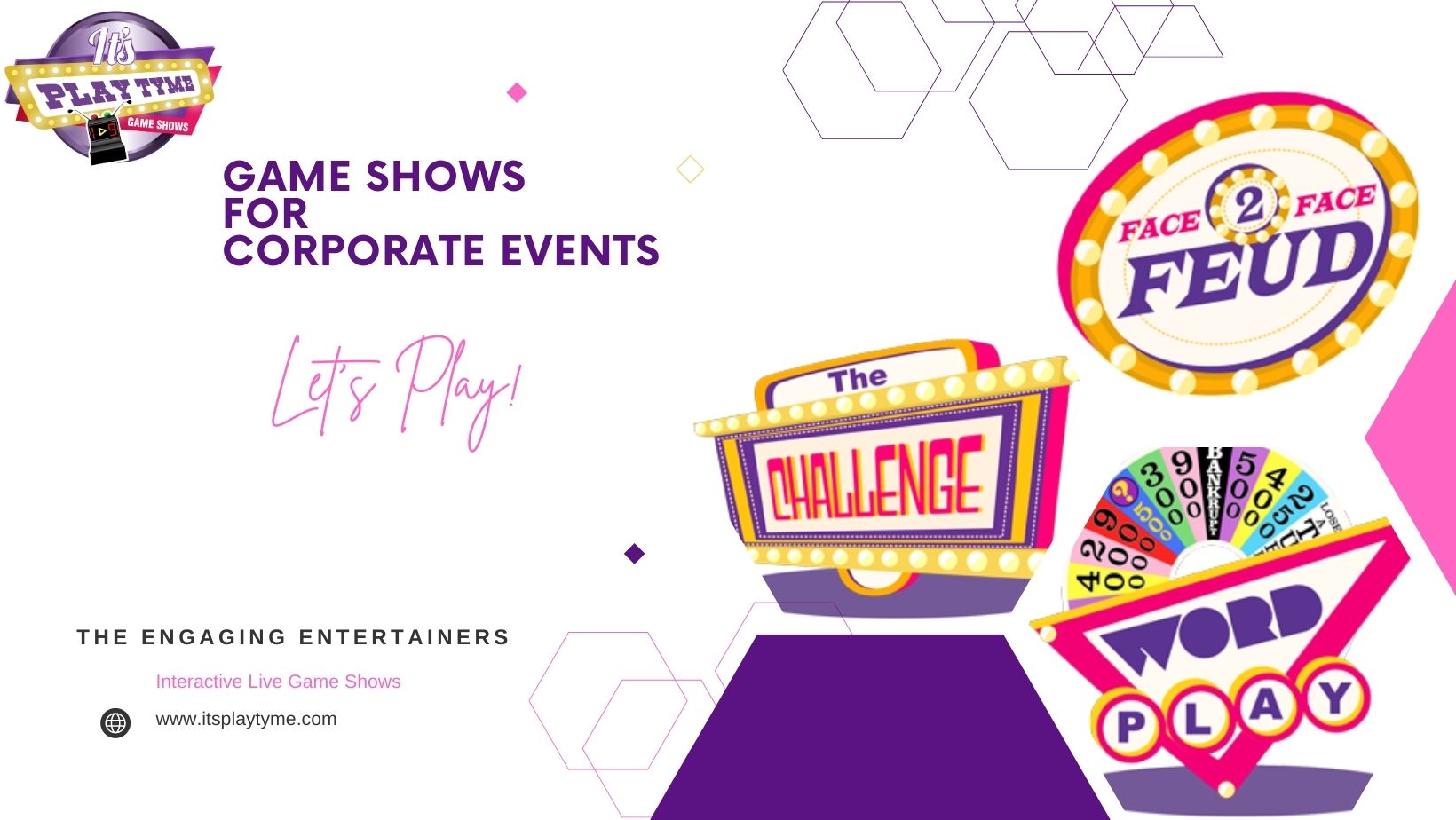
Got Games for a Corporate Event?
Contact us directly at 201-357-2979 or send an email to info@itsplaytyme.com today.
We have some of the most outrageous games to choose from and don’t require a deposit upon booking.
We look forward to hearing from you. Don’t delay, let’s play!
